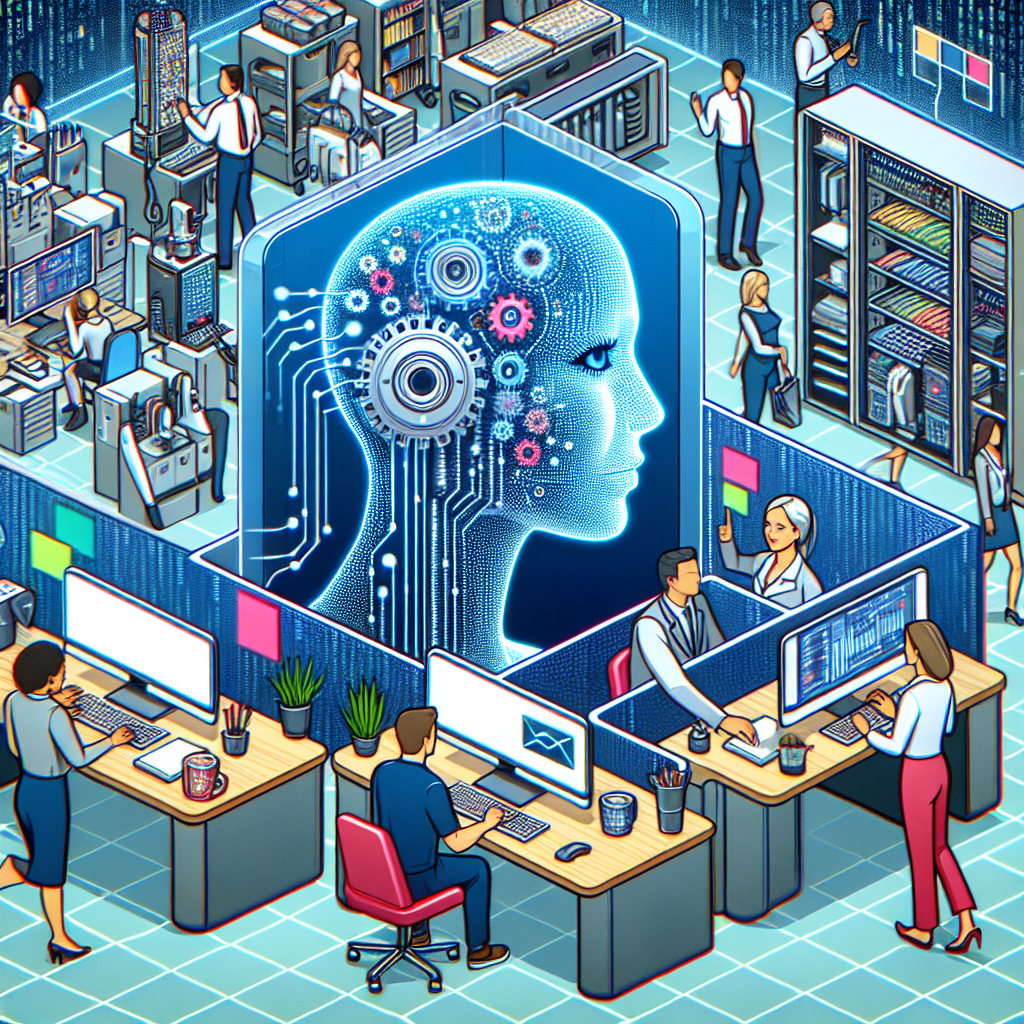Artificial General Intelligence (AGI) is a rapidly advancing technology that has the potential to transform the way we work in the future. AGI refers to machines that possess the ability to understand, learn, and apply knowledge across a wide range of tasks – similar to the cognitive abilities of a human. This technology is poised to revolutionize the workplace by automating tasks, increasing efficiency, and enabling new opportunities for innovation. In this article, we will explore the impact of AGI on the future of work and how it is reshaping industries across the globe.
The Rise of AGI in the Workplace
AGI has the potential to revolutionize the workplace by automating routine tasks and freeing up human workers to focus on more complex and creative work. This technology is already being used in a variety of industries, from manufacturing and healthcare to finance and transportation. In manufacturing, for example, AGI-powered robots can handle repetitive tasks with precision and speed, reducing the need for human labor and increasing productivity. In healthcare, AGI is being used to analyze medical images, diagnose diseases, and even assist in surgery. In finance, AGI is being used to analyze market trends, predict stock prices, and optimize investment strategies.
The Future of Work with AGI
As AGI continues to advance, the way we work will be transformed in many ways. One of the key benefits of AGI is its ability to automate routine tasks, freeing up human workers to focus on more strategic and creative work. This will enable companies to increase productivity, reduce costs, and drive innovation. In addition, AGI will enable workers to collaborate more effectively with machines, leading to new opportunities for efficiency and creativity. For example, workers can use AGI-powered tools to analyze data, generate insights, and make informed decisions. This will enable companies to stay competitive in a rapidly changing business environment.
AGI will also enable workers to acquire new skills and adapt to changing job requirements. As machines take on more routine tasks, workers will need to develop skills in areas such as problem-solving, critical thinking, and creativity. This will require companies to invest in training programs that help workers develop these skills and stay relevant in a rapidly changing job market. In addition, AGI will enable workers to work more flexibly and remotely, leading to new opportunities for work-life balance and increased job satisfaction.
FAQs about AGI in the Workplace
1. What is AGI and how is it different from artificial intelligence (AI)?
AGI refers to machines that possess the ability to understand, learn, and apply knowledge across a wide range of tasks – similar to the cognitive abilities of a human. AI, on the other hand, refers to machines that can perform specific tasks or functions, such as speech recognition or image analysis. AGI is more advanced than AI because it can adapt to new tasks and learn from experience, similar to a human.
2. How will AGI impact the job market?
AGI has the potential to automate routine tasks and increase productivity, leading to job displacement in some industries. However, AGI will also create new opportunities for innovation and creativity, leading to the creation of new jobs in areas such as data analysis, machine learning, and programming. Overall, the impact of AGI on the job market will depend on how companies and workers adapt to this new technology.
3. How can workers prepare for the rise of AGI in the workplace?
Workers can prepare for the rise of AGI by developing skills in areas such as problem-solving, critical thinking, and creativity. This will enable workers to stay relevant in a rapidly changing job market and take advantage of new opportunities for innovation and collaboration. In addition, workers can stay informed about the latest advancements in AGI and how they can apply this technology to their work.
4. How can companies leverage AGI to improve their business operations?
Companies can leverage AGI to automate routine tasks, increase productivity, and drive innovation. By using AGI-powered tools to analyze data, generate insights, and make informed decisions, companies can stay competitive in a rapidly changing business environment. In addition, companies can invest in training programs that help workers develop skills in areas such as problem-solving, critical thinking, and creativity, enabling them to adapt to the rise of AGI in the workplace.
In conclusion, AGI is poised to transform the future of work by automating tasks, increasing efficiency, and enabling new opportunities for innovation. As this technology continues to advance, companies and workers will need to adapt to stay relevant in a rapidly changing job market. By developing skills in areas such as problem-solving, critical thinking, and creativity, workers can take advantage of the new opportunities that AGI will bring to the workplace. Companies, in turn, can leverage AGI to automate routine tasks, increase productivity, and drive innovation, leading to a more competitive and efficient business environment. AGI is the future of work, and those who embrace this technology will be well-positioned to succeed in the years to come.

